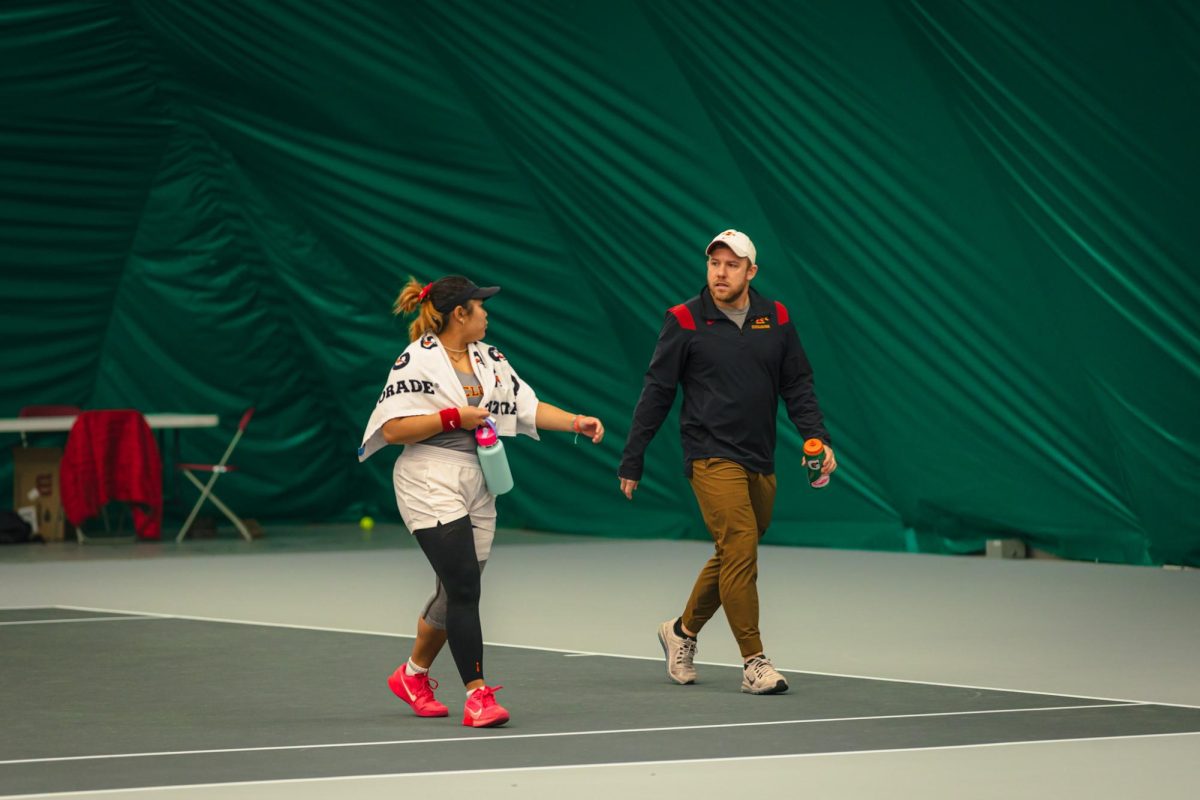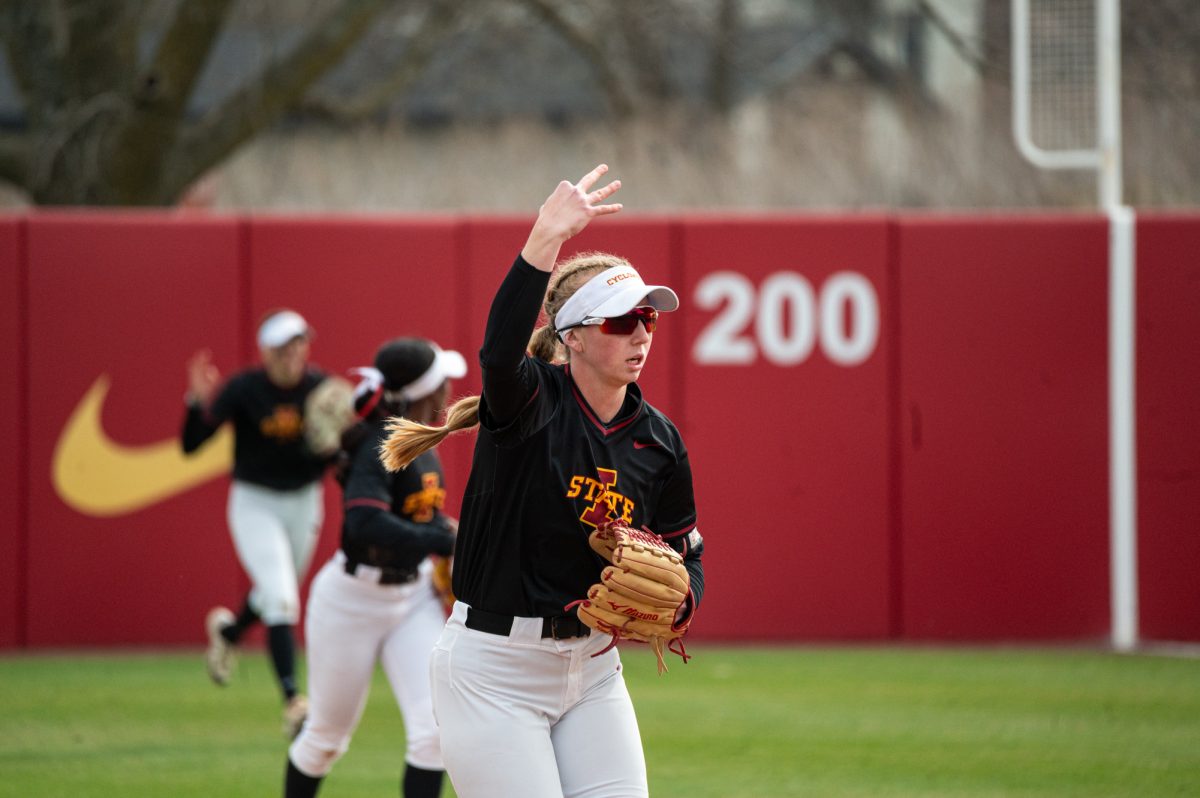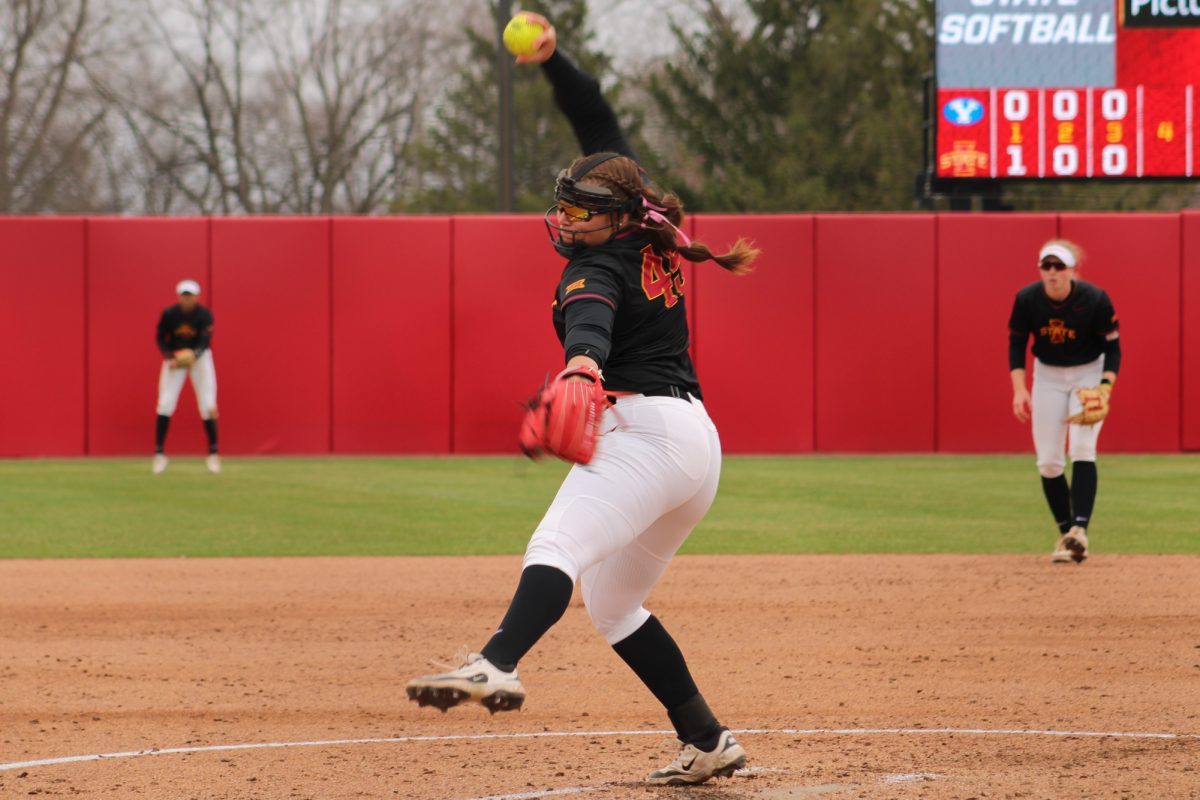Rockgrl founder spreads her message against sexism
February 7, 2002
“Sexism sells.”
Carla DeSantis, founder and editor in chief of Rockgrl magazine, spoke about the age-old dilemma of sexism and discrimination that women in rock have faced on Wednesday night in the Sun Room of the Memorial Union.
“I think the single greatest obstacle is to get past the mindset that women can’t play rock, that they just play acoustic guitar,” she said.
Rolling Stone founder Jann Wenner based his fledgling music magazine on the successful men’s magazine, Playboy, DeSantis said.
“When Rolling Stone said, `Sex sells,’ they really meant, `Sexism sells,’ ” she said.
DeSantis’ speech, “Can Chicks Rock? Sexism in the Music Industry,” was part of the Institute on National Affairs series, The Business of Music in America.
“I don’t consider myself a journalist; I’m an advocate for women in rock,” DeSantis said.
As a former member of an all-female rock band, DeSantis says she decided to quit just writing songs and start singing. However, she experienced a great deal of discrimination, something that discouraged females.
Once when she visited a guitar store, she was told not to touch anything.
“The subtext was that we were girls, therefore, we wouldn’t know how to play.”
Since they were girls, people treated them as if they weren’t able to be rock musicians.
As the years went by, DeSantis said she kept finding so many sexist comments about women rock musicians that she decided to create a medium in which women weren’t objectified by the sexist ideals of the music industry.
She asked why women, who have made strides in different careers, have found such resistance in the world to credit women rockers as musicians.
It seems likelier that women will be successful if they are “eye candy” rather than real musicians, she said.
“There’s no female equivalent of Meatloaf,” DeSantis said.
Women are criticized when they express violence in their music. DeSantis brought up the example of Madonna’s video for “What It Feels Like For A Girl,” in which she vented her anger violently; the video was shown once and then banned on both VH1 or MTV. The standards seem different for men, she said.
“I don’t object to Eminem’s freedom of speech, but I disagree with his mysogynistic words being heavily marketed to the impressionable minds of young boys,” DeSantis said.
To address this problem and try to make a change, we need to be proactive about the “joking” manner in which sexism is dealt with, DeSantis said.
Women should stop being afraid to pick up their guitar and play, she continued. Artists like Alanis Morrisette and Courtney Love made powerful statements with their anger-themed albums.
“Feminism is one of those words that people are afraid of . it’s a powerful word.”
Underground labels and internet stations provide a positive productive outlet for women rockers to put out their music, DeSantis said.
“I liked what she did with her magazine,” said Amber Elias, Ames resident. “Back when I was in college, I had a radio station and she gave me encouragement.”
“I love rock music and the female artists involved,” said Sulianet Ortiz, freshman in engineering science. “As DeSantis said, a lot of us [girls] have a fear about pursuing a career as a musician.”






